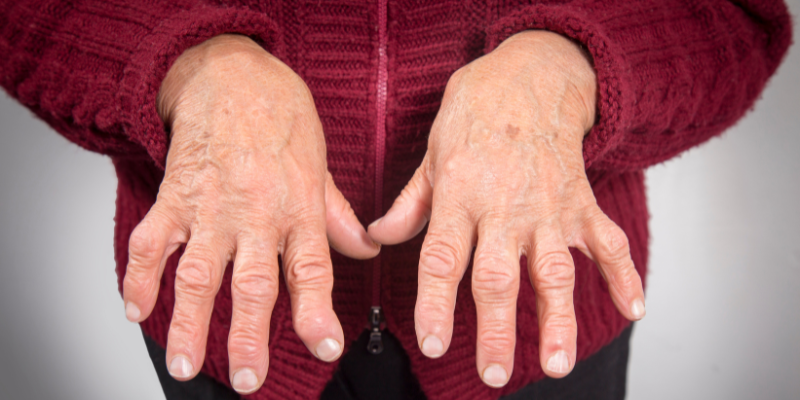Autoimmune Conditions
Autoimmune Conditions (e.g., Rheumatoid Arthritis, SLE) Treatment

Treatment Range Hospital in Hyderabad provides specialized care for autoimmune conditions like Rheumatoid Arthritis (RA) and Systemic Lupus Erythematosus (SLE). Our experienced rheumatologists and physicians use advanced therapies including steroids, immunosuppressants such as methotrexate and hydroxychloroquine, to control inflammation and prevent organ damage. As one of the leading centers for autoimmune disease management in Hyderabad, we focus on helping patients achieve long-term remission and improved quality of life.
Our comprehensive treatment plans include detailed assessments and regular monitoring of joint, liver, and kidney functions to ensure safe and effective use of medications. We also provide lifestyle counseling and physiotherapy support to help manage symptoms like joint pain, fatigue, and swelling, promoting better daily functioning for patients with chronic autoimmune disorders.
If you are seeking autoimmune disease treatment in Hyderabad, Treatment Range Hospital offers expert diagnostics, personalized care plans, and a compassionate approach to support you in managing your condition and maintaining your health.
- Your 6 - Phase health Process
Your Complete Autoimmune Conditions Journey
🩺Phase 1: Understanding the Condition
- Autoimmune diseases occur when the immune system mistakenly attacks the body’s own tissues.
- Common types include:Rheumatoid Arthritis (RA): Attacks joints
- Systemic Lupus Erythematosus (SLE): Affects skin, joints, kidneys, and more
- These are chronic conditions requiring long-term care and monitoring.
⚠️Phase 2: Symptoms & Early Indicators
- Symptoms vary by disease, but may include:Joint pain, swelling, and stiffness (RA)
- Fatigue, rashes, fever, and organ involvement (SLE)
- Photosensitivity, mouth ulcers, hair thinning
- Symptoms may flare and subside — early diagnosis improves outcomes.
📝Phase 3: Diagnosis & Baseline Testing
- Key Investigations:ANA, anti-dsDNA, RF, anti-CCP antibodies
- ESR, CRP (inflammation markers)
- CBC, liver function, kidney function
- X-rays, ultrasound or MRI of joints (RA)
- Diagnosis often made by a rheumatologist based on clinical and lab findings.
💊Phase 4: Treatment & Medications
- First-line therapies:Corticosteroids (Prednisone) – for flares
- Disease-Modifying Antirheumatic Drugs (DMARDs):
- Methotrexate, Sulfasalazine , Hydroxychloroquine
- Advanced therapies (in some cases):Biologics
- Immunosuppressants
- Pain relief: NSAIDs, physiotherapy as needed
📋Phase 5: Monitoring & Lifestyle Support
- Regular Monitoring Includes:CBC, LFTs, renal profile
- Joint mobility/function assessments
- Eye exams , Autoantibody and disease activity tracking
- Lifestyle Support: Gentle exercise, yoga, stress reduction
- Balanced anti-inflammatory diet
- Avoid sun exposure
💪 Phase 6: Long-Term Management & Support
- Chronic care = regular follow-ups with rheumatologist
- Goals:Minimize flares
- Prevent joint/organ damage
- Preserve quality of life
- Support Systems:Mental health counseling
- Patient groups & education
- Medication adherence support
Insurance Support










- Why Choose Us
Why patients trust us with their care
- Patient Testimonials
Patient stories of care and recovery










- Frequently Asked Questions
Helping you understand Our healthcare
Autoimmune diseases occur when the immune system mistakenly attacks the body’s own tissues. Rheumatoid Arthritis primarily affects joints, while SLE can affect multiple organs including skin, kidneys, and joints.
Common symptoms include joint pain, swelling, stiffness, fatigue, skin rashes, fever, and sensitivity to sunlight. Symptoms may come and go in flares.
Diagnosis involves blood tests for specific antibodies (ANA, anti-dsDNA, RF, anti-CCP), inflammatory markers (ESR, CRP), and imaging like X-rays or ultrasounds of affected joints.
Treatment includes corticosteroids to reduce inflammation, DMARDs like Methotrexate and Hydroxychloroquine to slow disease progression, and sometimes biologics or immunosuppressants for severe cases.
Regular monitoring is essential, including blood tests (CBC, liver and kidney function), eye exams (especially if on Hydroxychloroquine), and assessments of joint function and disease activity.